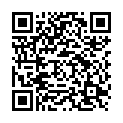|
|
|
| Module code: KIB-HLTP |
|
4V (4 hours per week) |
|
5 |
| Semester: 6 |
| Mandatory course: no |
Language of instruction:
German |
Assessment:
Written exam
[updated 26.02.2018]
|
KI608 (P222-0076) Computer Science and Communication Systems, Bachelor, ASPO 01.10.2014
, semester 6, optional course, technical
KIB-HLTP Computer Science and Communication Systems, Bachelor, ASPO 01.10.2021
, semester 6, optional course, technical
KIB-HLTP Computer Science and Communication Systems, Bachelor, ASPO 01.10.2022
, semester 6, optional course, technical
PIBWI32 Applied Informatics, Bachelor, ASPO 01.10.2011
, semester 6, optional course, informatics specific
PIB-HLTP Applied Informatics, Bachelor, ASPO 01.10.2022
, semester 4, optional course, informatics specific
PIB-HLTP Applied Informatics, Bachelor, SO 01.10.2026
, semester 4, optional course, informatics specific
|
60 class hours (= 45 clock hours) over a 15-week period.
The total student study time is 150 hours (equivalent to 5 ECTS credits).
There are therefore 105 hours available for class preparation and follow-up work and exam preparation.
|
Recommended prerequisites (modules):
None.
|
Recommended as prerequisite for:
|
Module coordinator:
Prof. Dr. Albrecht Kunz |
Lecturer: Prof. Dr. Albrecht Kunz
[updated 01.10.2022]
|
Learning outcomes:
After successfully completing this module, students will have comprehensive knowledge about current microelectronic production methods. This knowledge will enable them to classify and assess the limits and possibilities of integrated semiconductor devices and their circuit families.
Students will have detailed knowledge about common circuit families. They will understand the differences between the different circuit families and be able to analyze and evaluate them by using numerically generated simulation results with regard to possible applications.
[updated 26.02.2018]
|
Module content:
1.Technological processes:
1.1.Trends in microelectronics,
1.2.Materials,
1.3.Wafer fabrication,
1.4.Oxidation, lithography, etching and doping techniques,
1.5.Deposition methods,
1.6.MOS and bipolar technologies for circuit integration,
1.7.Integration examples
2.Semiconductor circuit families:
2.1.Diode transistor logic,
2.2.Transistor-transistor logic,
2.3.Emitter-coupled logic,
2.4.Integrated injection logic,
2.5.NMOS circuits
[updated 26.02.2018]
|
Recommended or required reading:
Baker, R. Jacob: CMOS Circuit Design, Layout, and Simulation, IEEE Press Series on Microelectronic Systems,
Uyemura, John P.: CMOS Logic Circuit Design, Kluwer Academic Publishers,
DeMassa, Thomas A.: Digital Integrated Circuits, John Wiley & Sons,
Hilleringmann, U.: Silizium Halbleitertechnologie, Teubner-Verlag,
Wupper, H.: Elektronische Schaltungen, Band 1 und 2, Springer-Verlag,
Rein, H. _ M.: Integrierte Bipolarschaltungen, Springer-Verlag,
Post, H. _ U.: Entwurf und Technologie hochintegrierter Schaltungen, Teubner-Verlag,
Paul, Reinhold: Einführung in die Mikroelektronik, Hüthig-Verlag,
Hoppe, Bernhard: Mikroelektronik, Band 1 und 2, Vogel-Verlag.
[updated 26.02.2018]
|


